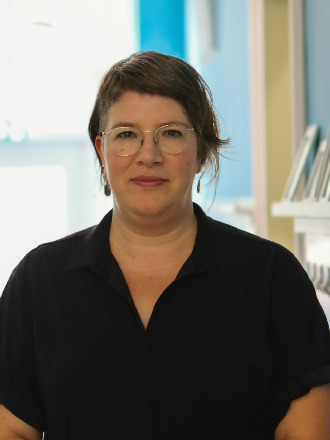How Can We Better Understand Learning and Developmental Problems in Children?

On September 20, Marijn van Dijk will deliver her inaugural lecture on learning and developmental problems in children. She investigates how these problems arise and their impact on children, their teachers, and parents.
"In my view, research on learning and developmental problems in childhood should focus on the underlying processes," Van Dijk explains. "These processes unfold moment by moment, day by day, and over the longer term of months and years. Children, parents, teachers, and possibly other professionals should be seen as a connected (“coupled”)system. They are inextricably linked and constantly influence each other.
Interventions
Van Dijk studies various aspects of learning and development, such as learning in the classroom, verbal reasoning, socio-emotional well-being, and language skills. Special attention is given to children with learning and developmental problems such as autism spectrum disorder and children with special risks, for example, due to a refugee background. "I try to understand how these processes work. Based on this, appropriate interventions can be developed," says Van Dijk.
From Developmental Psychology to Orthopedagogy
Van Dijk has been working at the Faculty of Behavioural and Social Sciences since 1997, first as a PhD candidate in developmental psychology and later in various other positions within the tenure track. "In recent years, my research has increasingly moved towards orthopedagogy," she says. "I saw an opportunity here to further expand and refine my research."
Counterbalance
Van Dijk wants to offer an alternative to the emphasis on efficiency and medicalization in education. "Everyone wants the best for the child, but this often leads to pressure on early detection and classification, which is not always desirable. My research starts with thorough analyses of the processes visible in the here-and-now. Interventions should be based on and aimed at intervening in individual processes."
Future
In the coming years, Van Dijk hopes to expand her research and establish new collaborations within orthopedagogy. "I have recently started several new studies focused on preschoolers," she shares. "For example, we are looking at parent-child interactions during reading and the creative behavior of students in the classroom. In one project, we are investigating the well-being of young refugee children and their interactions with teachers, with the goal of developing an intervention that supports teachers in dealing with these children."
More information
|
Inaugural lecture: |
|
|
Title: |
Leer- en ontwikkelingsproblemen in de kindertijd: a question of time |
|
When: |
Fr 20-09-2024 16:15 - 17:00 |
|
Where: |
Aula Academy Building, Broerstraat 5, Groningen |
More news
-
03 February 2026
‘Such willpower’
-
20 January 2026
Alcohol, texting, and e-bikes
-
13 January 2026
Lonneke Lenferink joins The Young Academy


